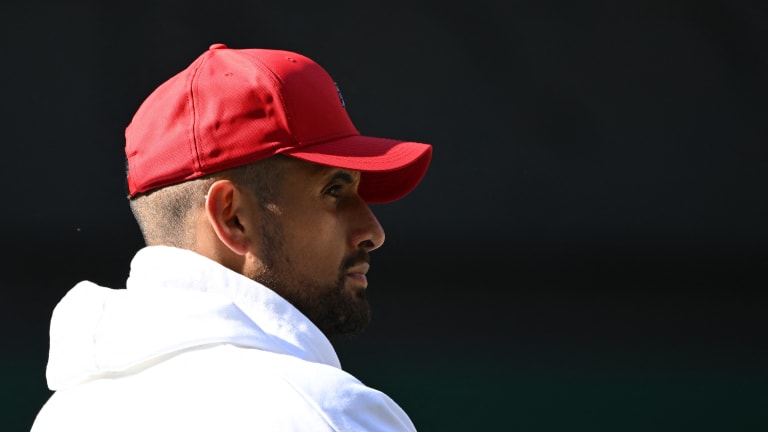Wimbledon
The War Within Nick Kyrgios: After the Aussie's breakthrough Wimbledon run, what's next?
By Jul 11, 2022Wimbledon
Darren Cahill: Jannik Sinner watches more Carlos Alcaraz matches than he does with any other player
By Jul 14, 2025Wimbledon
Jannik Sinner reignites Carlos Alcaraz rivalry with Wimbledon victory
By Jul 14, 2025Wimbledon
Jannik Sinner reversed his usual pattern against Carlos Alcaraz. It won him Wimbledon
By Jul 14, 2025Wimbledon
Veronika Kudermetova and Elise Mertens win women's doubles title at Wimbledon
By Jul 13, 2025Wimbledon
Joy to the World: What Carlos Alcaraz has, and what we are enjoying
By Jul 13, 2025Wimbledon
Iga Swiatek keeps surprising herself after Wimbledon title caps "surreal" turnaround on grass
By Jul 12, 2025Wimbledon
Iga Swiatek wins first Wimbledon, sixth Grand Slam title with 6-0, 6-0 rout of Amanda Anisimova
By Jul 12, 2025Wimbledon
Wimbledon men's final preview: Will Carlos Alcaraz, Jannik Sinner share another epic?
By Jul 12, 2025Wimbledon
Julian Cash, Lloyd Glasspool become first all-British pair to win Wimbledon men's doubles title since 1936
By Jul 12, 2025The War Within Nick Kyrgios: After the Aussie's breakthrough Wimbledon run, what's next?
Those who worship at the altar of Kyrgios’ indisputable talent fervently hope that he has turned a corner. Maybe, maybe not.
Published Jul 11, 2022
Advertising
Advertising

“I was obviously super excited to be here,” Kyrgios said of this year’s Wimbledon event. “I had some high hopes, but I've never felt, to be honest, good. I just felt so much pressure. There's so much, like, anxiety, pressure to do things or achieve things.”
© AFP via Getty Images
Advertising

Unsung Heroes
Mertens enjoys 2025 resurgence
Among the highlights: her first Top 20 finish in singles since 2020.